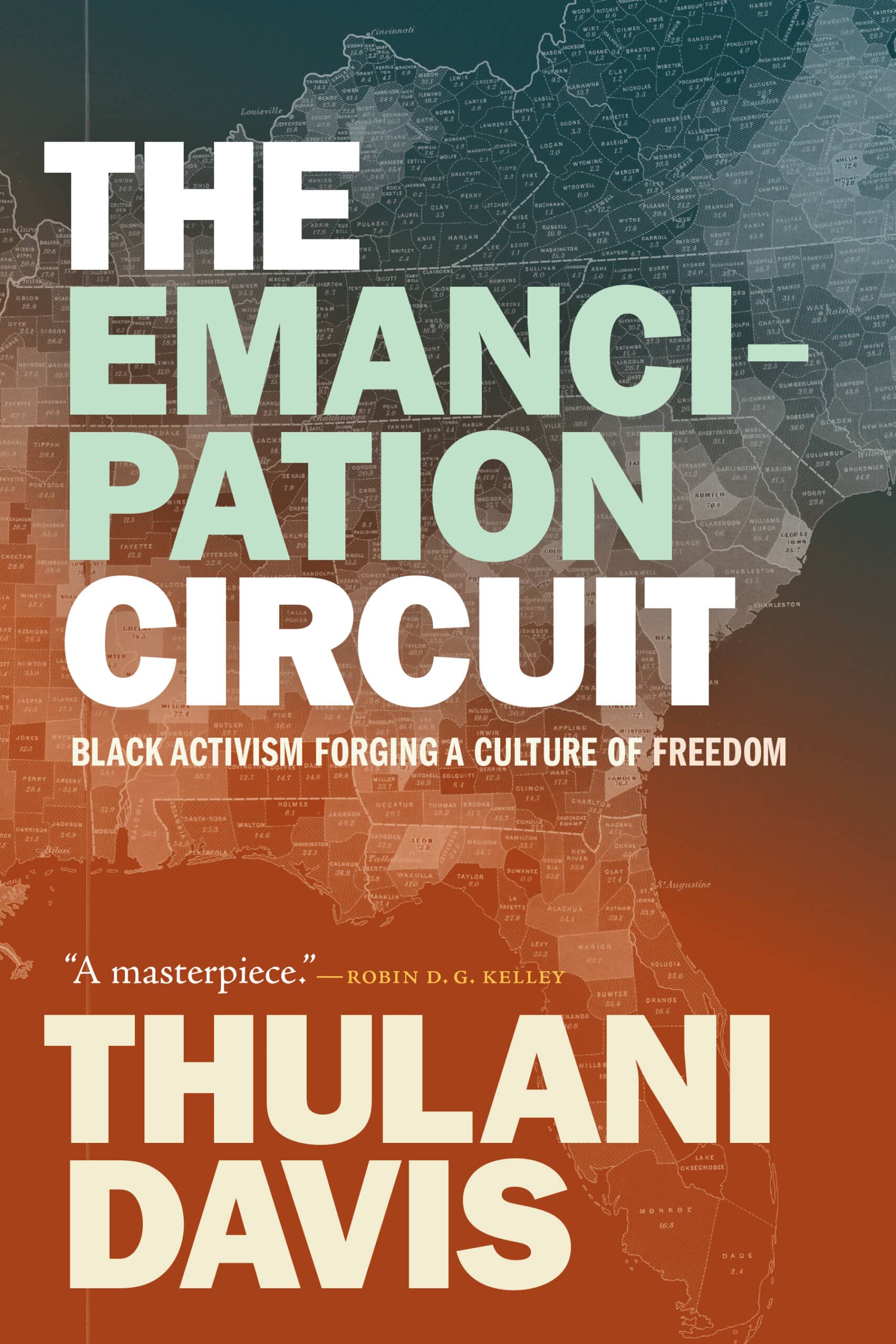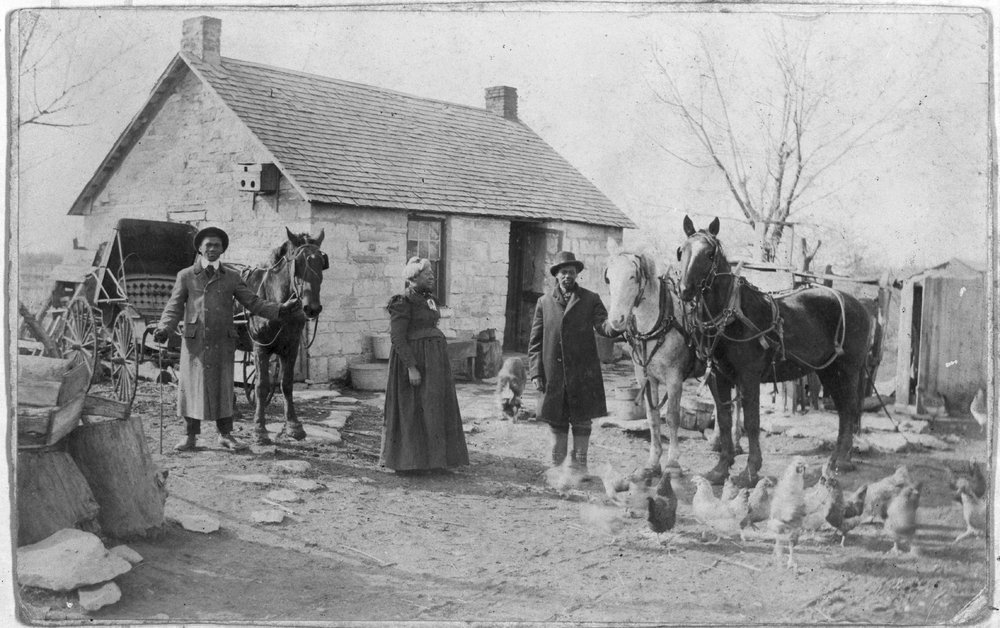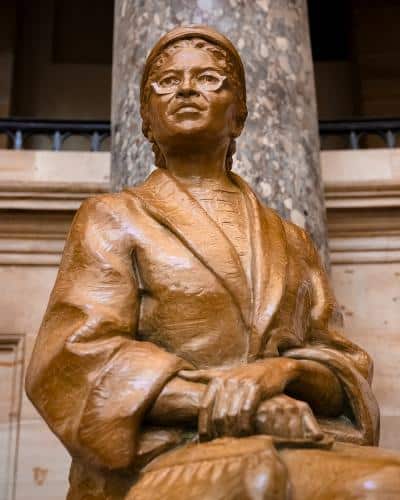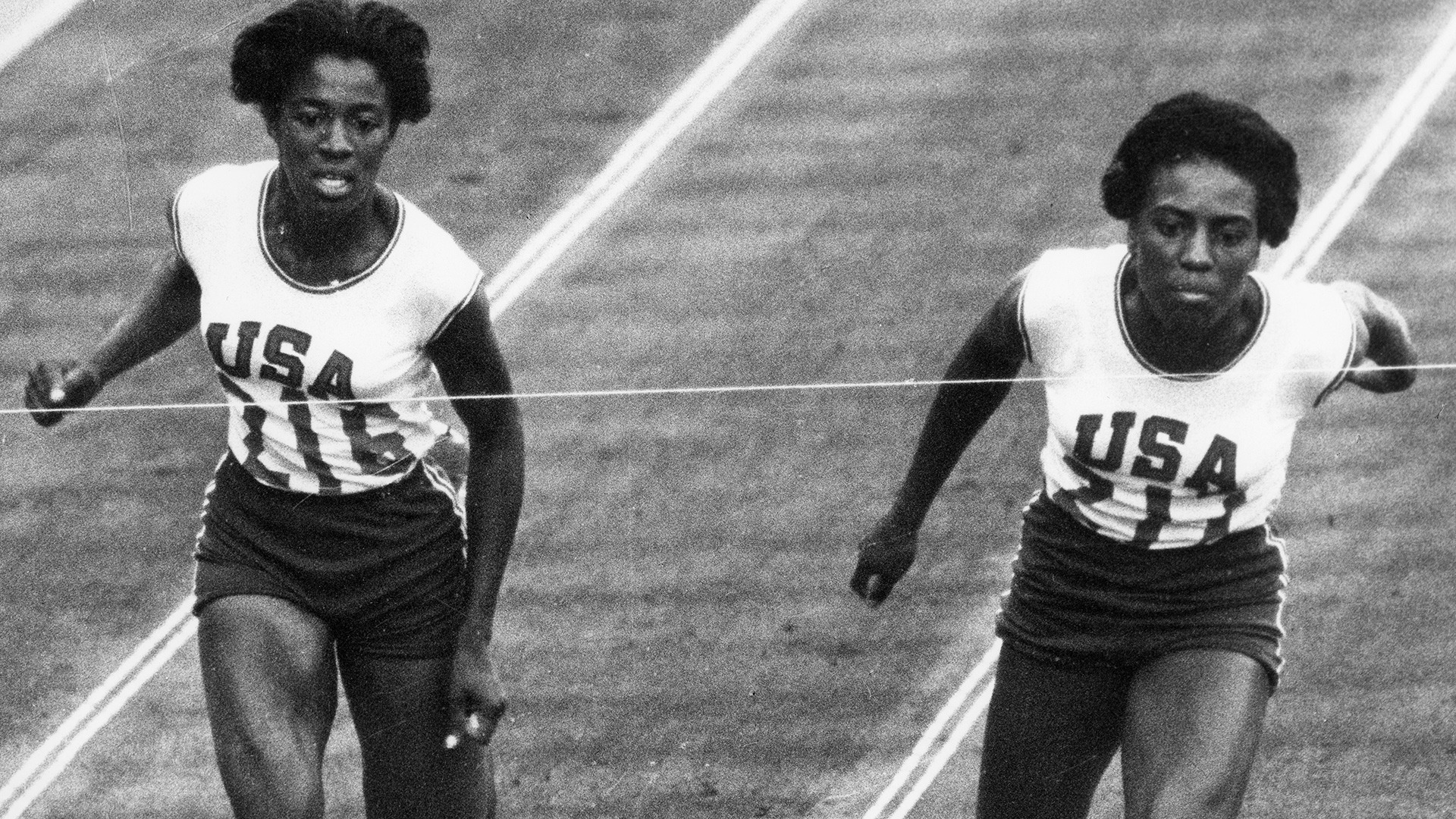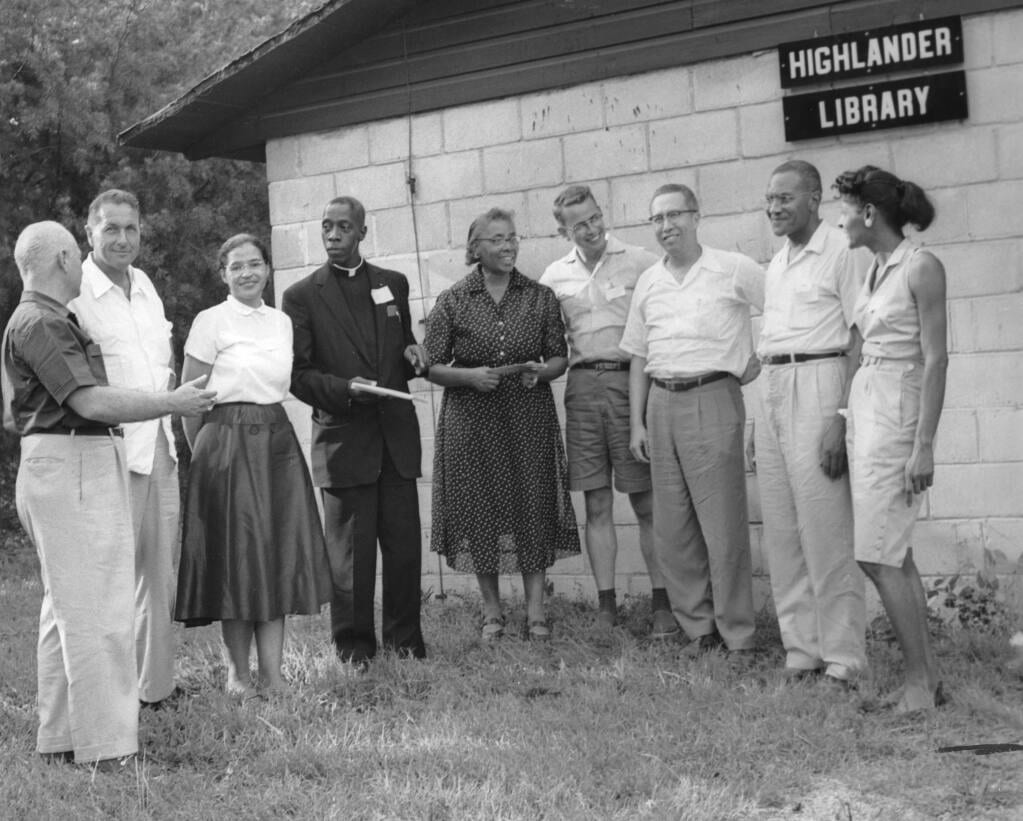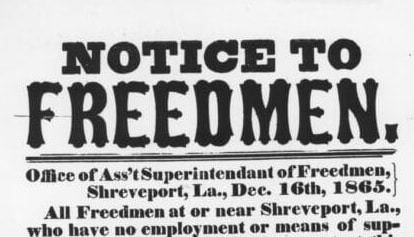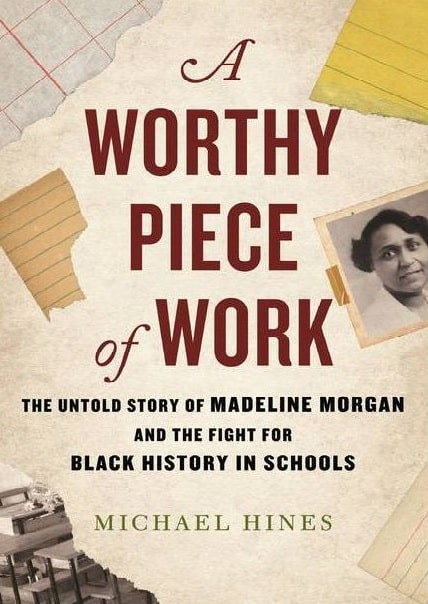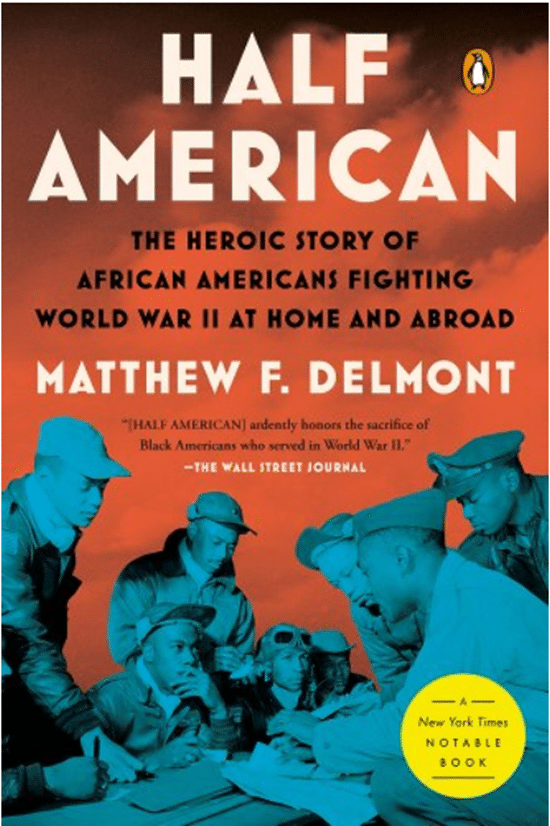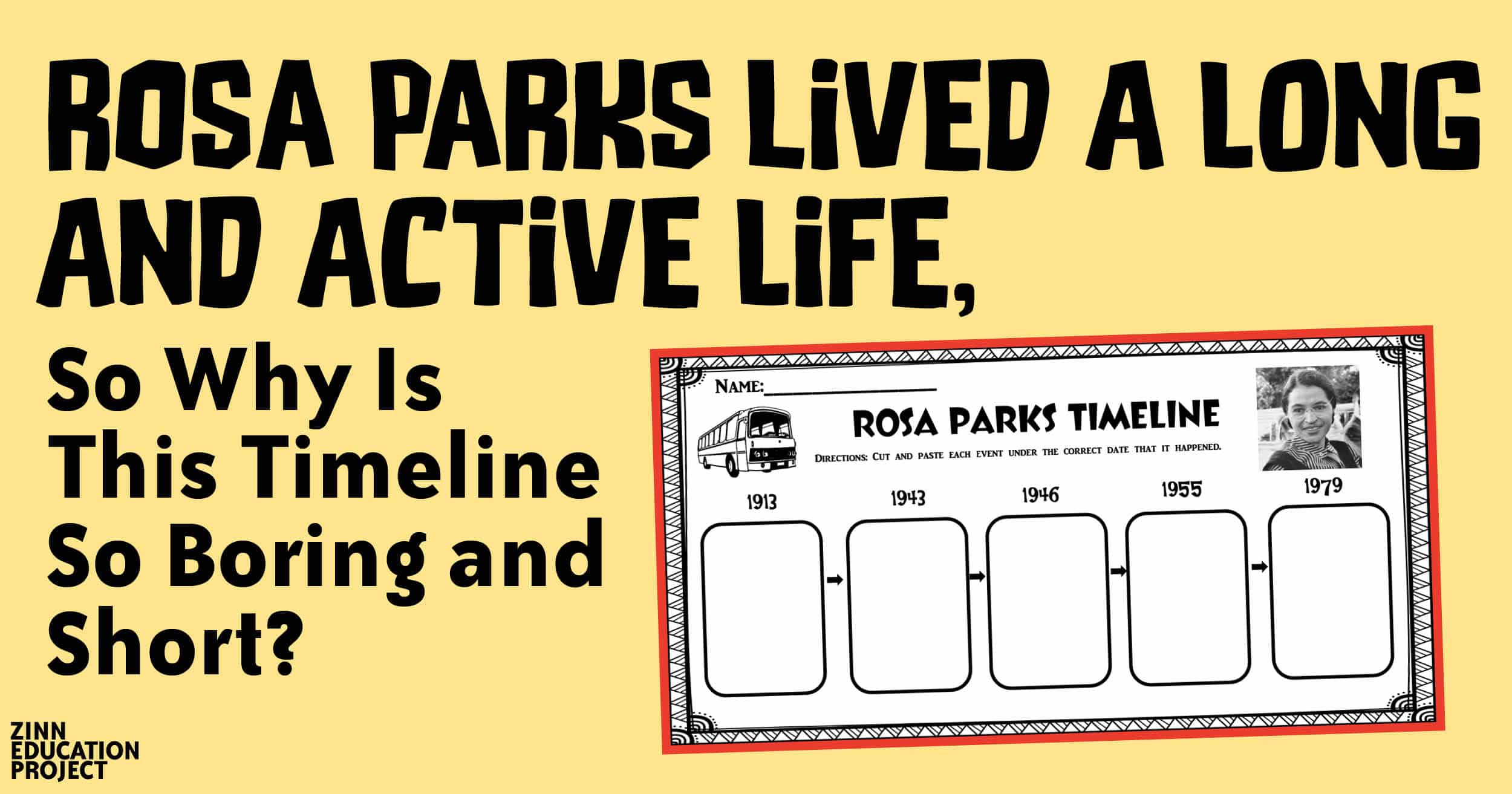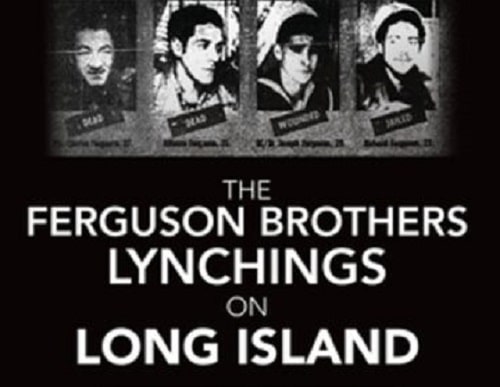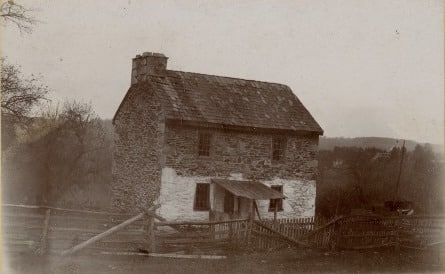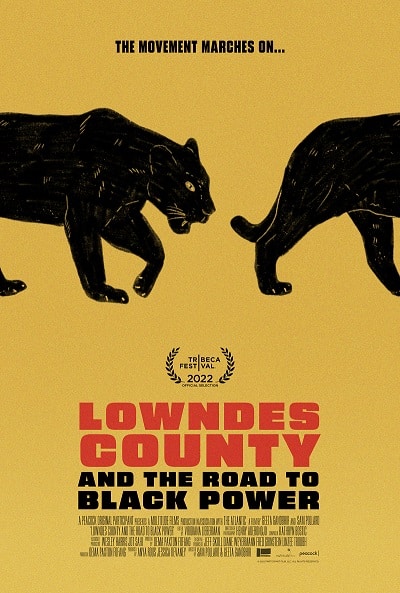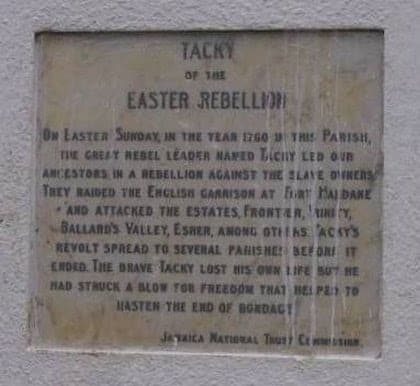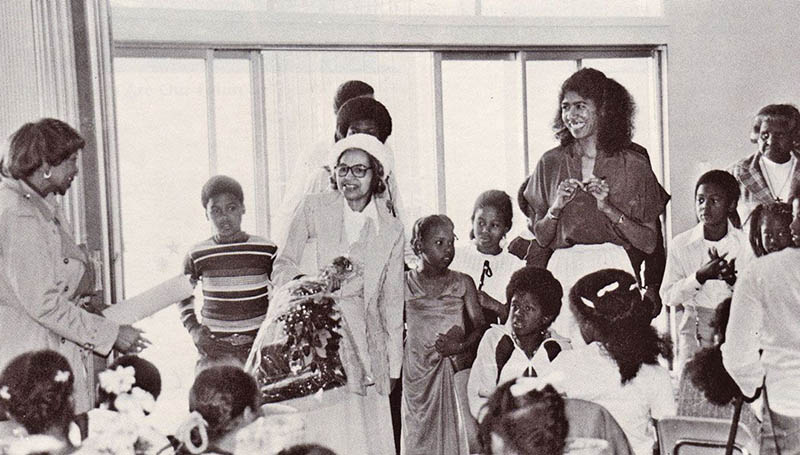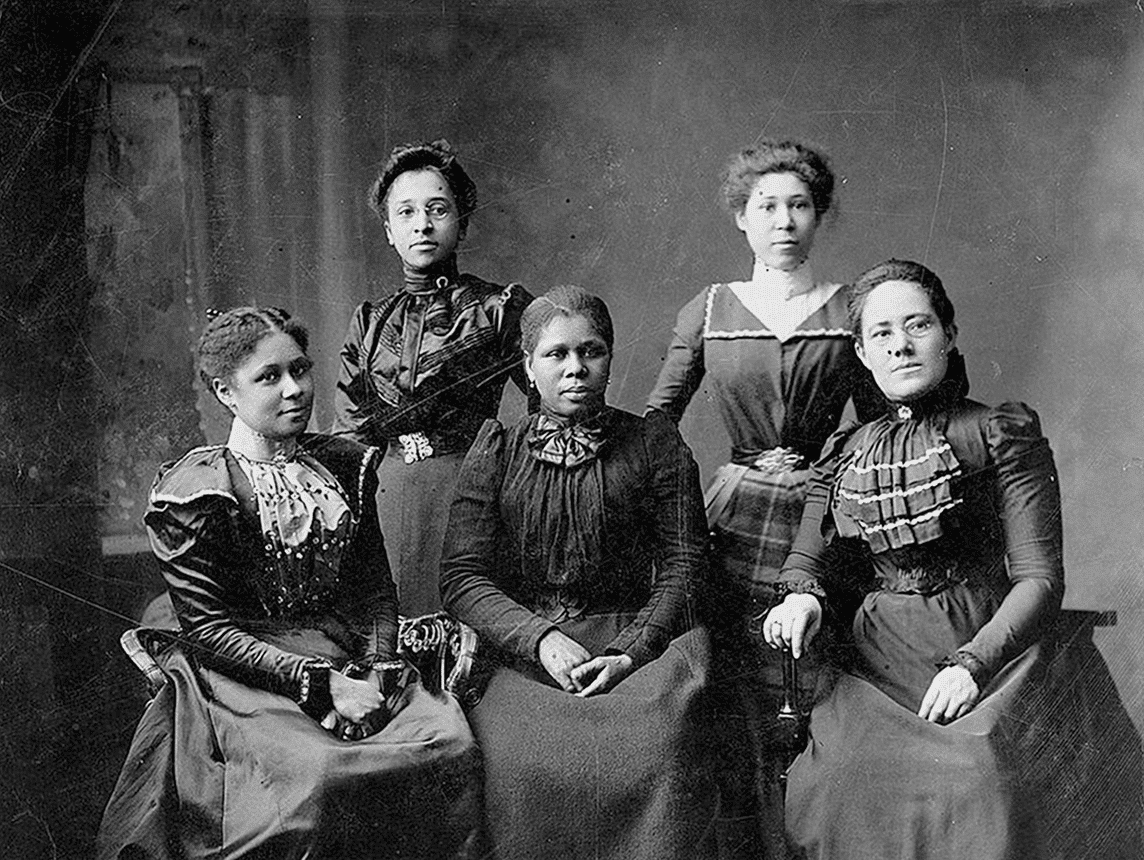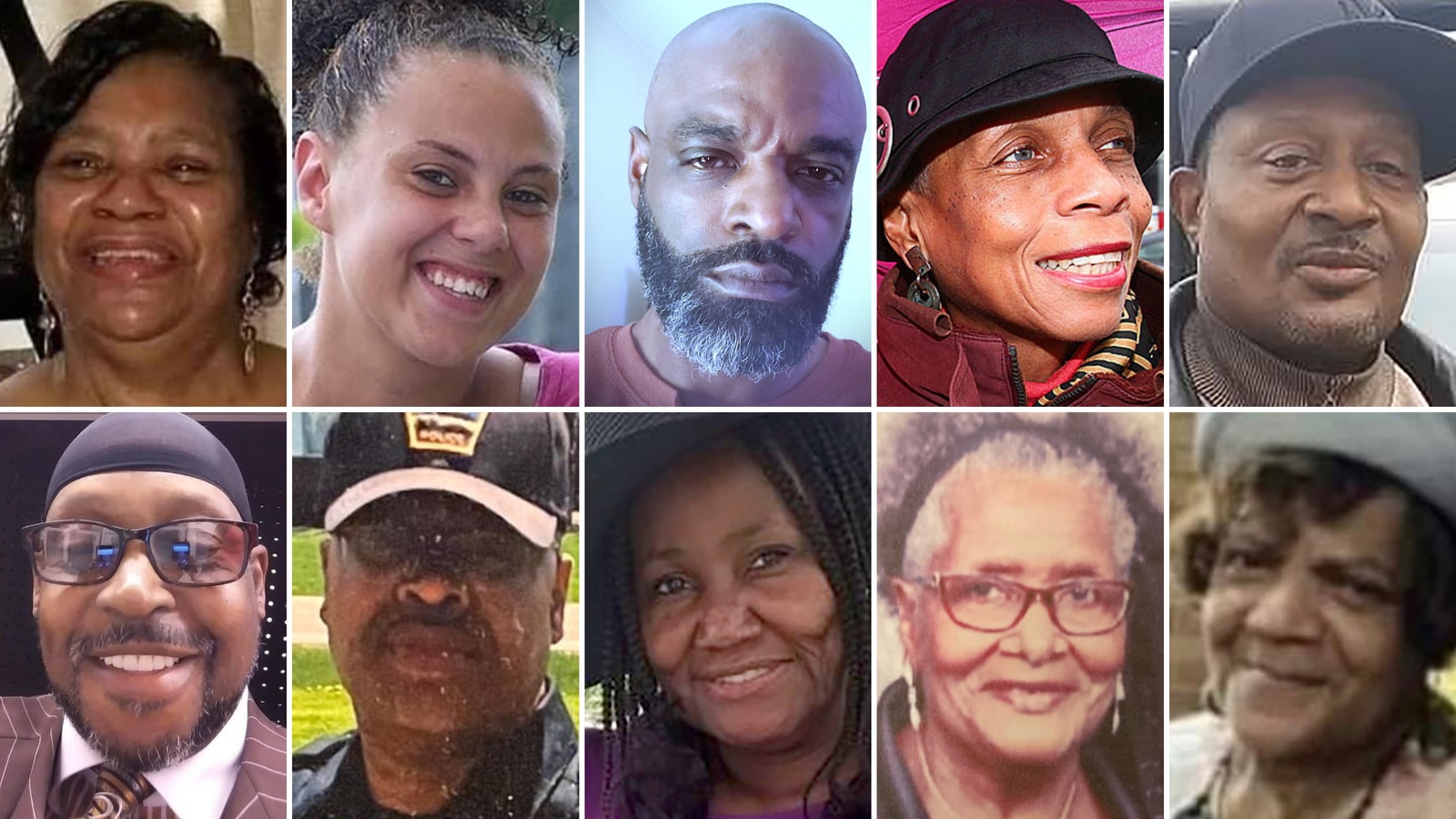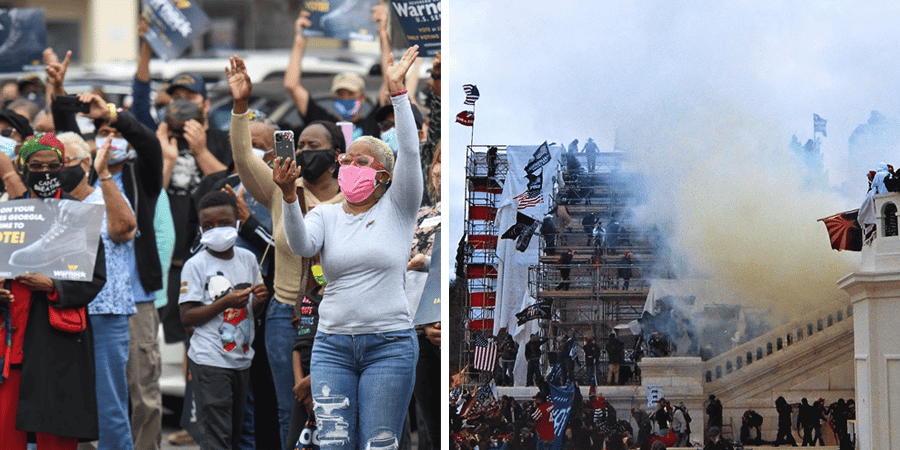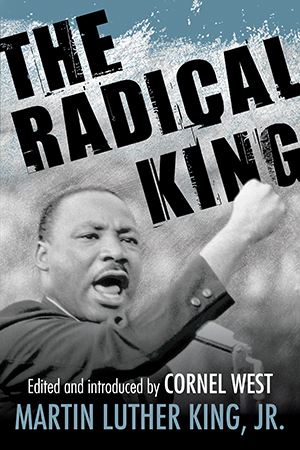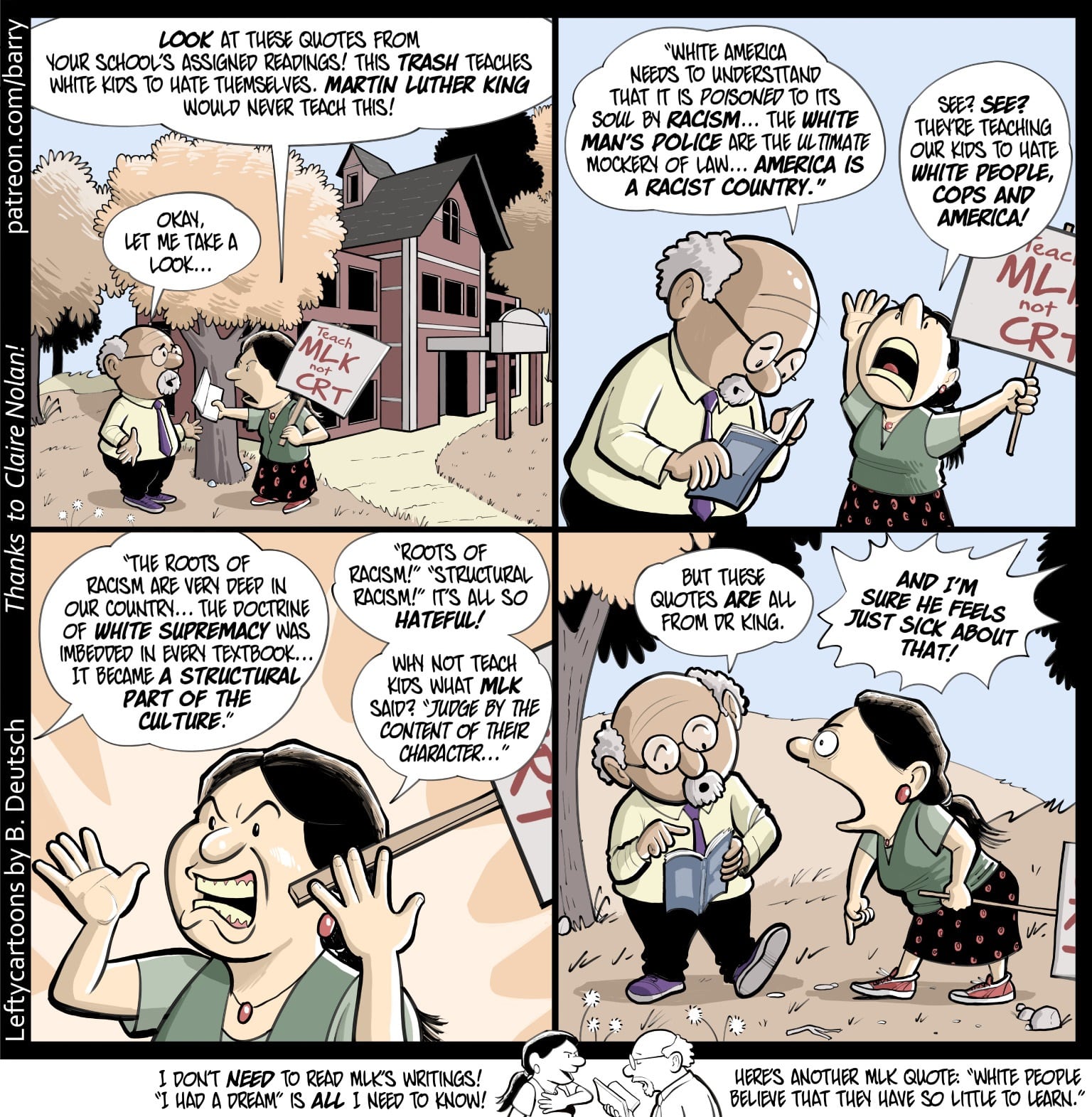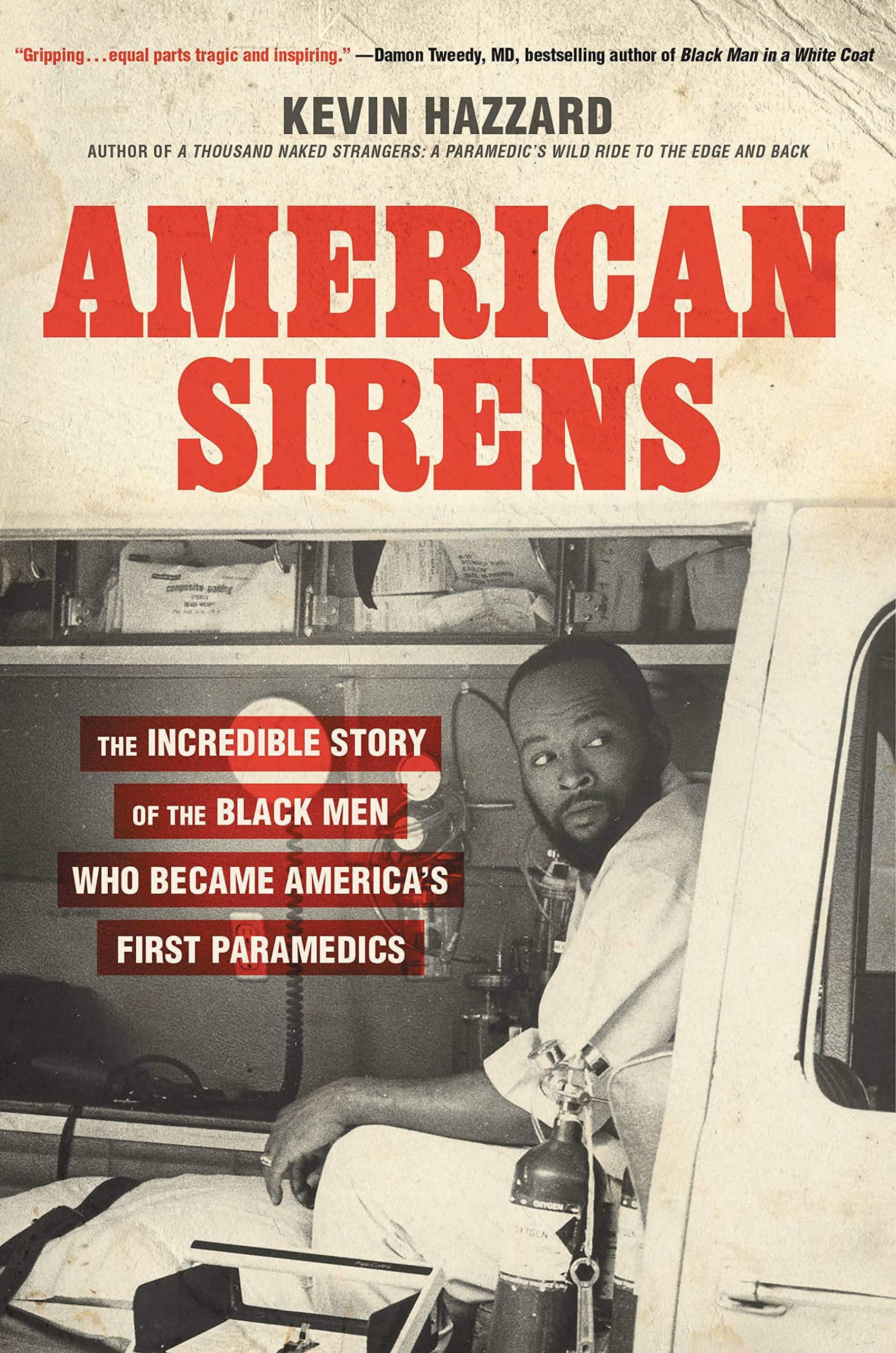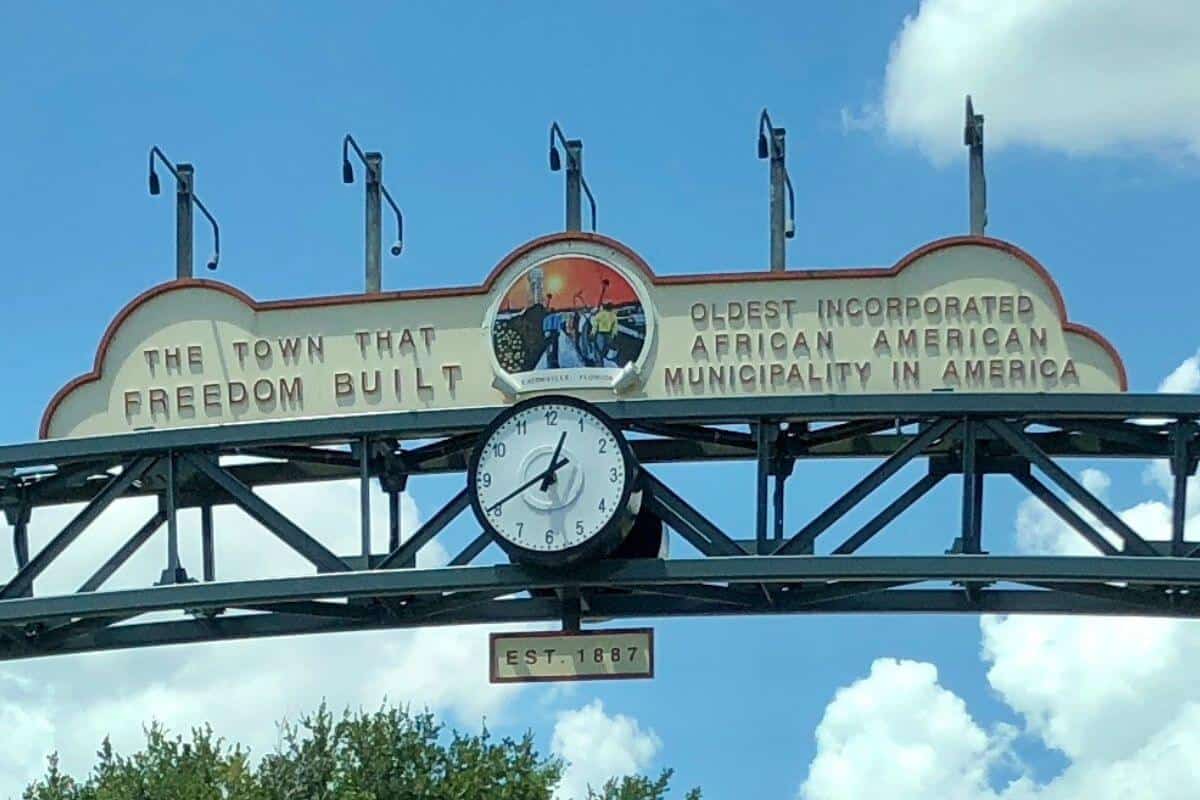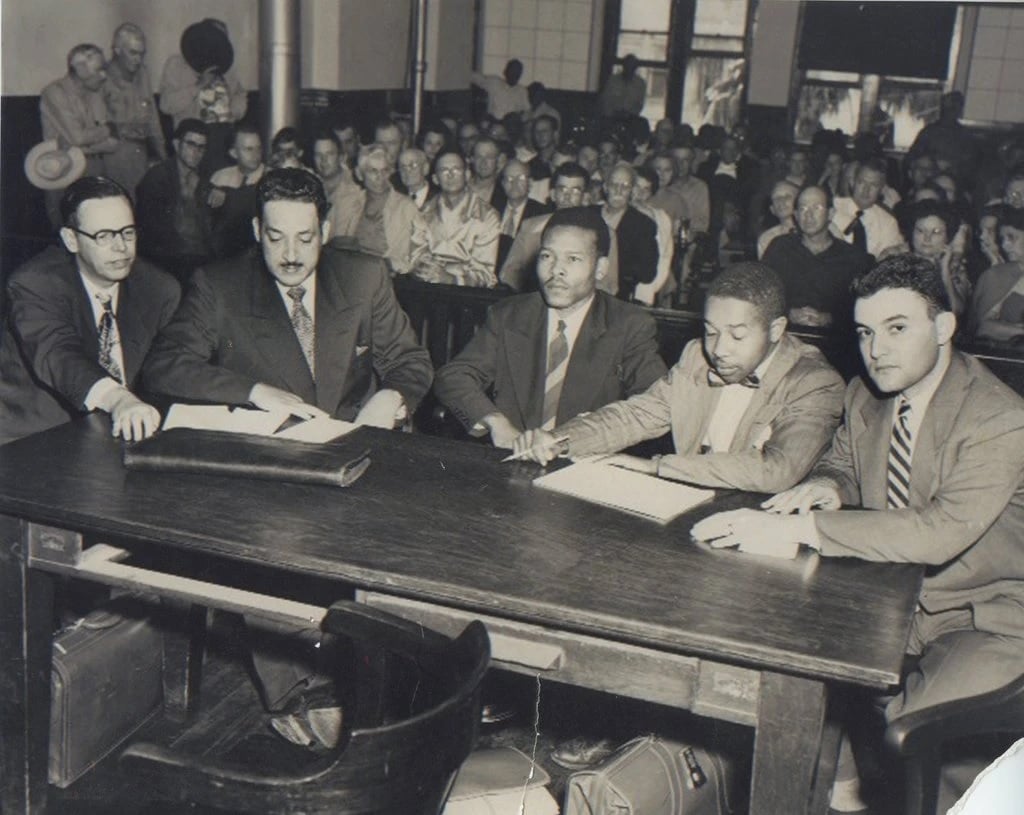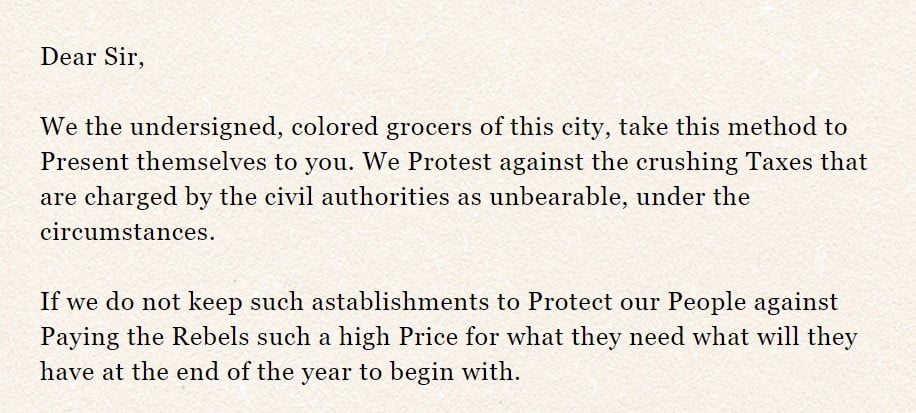Book — Non-fiction. By Thulani Davis. 2022. 464 pages.
The author traces how people newly freed from bondage created political organizations and connections that mobilized communities across the South during Reconstruction, building on a long tradition of organizing against all odds.
Teaching Activity by Thulani Davis
Continue reading
Most state standards and textbooks frame Reconstruction as a Southern story, but grassroots struggles for justice met resistance in the North and to the west. That is why one of the recommendations in our report, Erasing the Black Freedom Struggle is to “Emphasize the significance of Reconstruction throughout the United States.”
Continue reading
This lesson by Cierra Kaler-Jones invites students to consider how Rosa Parks’ legacy is memorialized by critically examining her statue at the U.S. Capitol. Students learn the fuller story of Rosa Parks’ life and use that information to determine how they would memorialize her legacy.
Continue reading
At the XIX Olympic Games in Mexico City in 1968, Wyomia Tyus became the first person to win gold medals in the 100-meter sprint in two consecutive Olympics. She was also participating in Olympic Project for Human Rights (OPHR) protest.
Continue reading
Teaching Activity. By Jesse Hagopian. 4 pages.
With a short video and readings with competing viewpoints, students will learn about master narratives and counter-narratives and how they apply to Rosa Parks’ life. This activity can be introduced before watching the film or reading the book, The Rebellious Life of Mrs. Rosa Parks.
Continue reading
Teaching Activity. By Mimi Eisen and Ursula Wolfe-Rocca. 47 pages.
A follow-up lesson to “Reconstructing the South,” using primary source documents to reveal key outcomes of the Reconstruction era.
Continue reading
Book — Non-fiction. By Michael Hines. 2022. 224 pages.
The story of Madeline Morgan, a teacher and an activist who created curricula that bolstered Black claims for recognition and equal citizenship.
Continue reading
Book — Non-fiction. By Matthew Delmont. 2024. 400 pages.
Accounts from the Black press, Black workers and veterans, and civil rights activists, will help teachers and students tell a fuller, truer, and more historically useful story of World War II.
Continue reading
Teaching Activity. By Ursula Wolfe-Rocca. 3 pages.
This timeline activity builds on students’ viewing of the 2022 film, The Rebellious Life of Mrs. Rosa Parks, and involves collaborating on a new timeline of Mrs. Parks' life.
Continue reading
Two African American brothers — Charles and Alphonso Ferguson — were shot and killed by a white police officer in the segregated Freeport neighborhood of Long Island, New York.
Continue reading
A community of armed Black men and women in Christiana, Pennsylvania successfully defended four Black people from capture, serving as a catalyst for further armed self-defense within the abolitionist movement.
Continue reading
Book — Non-fiction. By Gerald Horne. 2022. 632 pages.
A detailed history of counterrevolutionary forces in Texas state history.
Continue reading
Film. Directed by Sam Pollard and Geeta Gandbhir. 2022. 90 minutes.
The story of young SNCC organizers who fought for voting rights and Black power in Lowndes County, Alabama.
Teaching Activity by Directed by Sam Pollard & Geeta Gandbhir
Continue reading
Inspired by the First Maroon War, a group of enslaved Ghanaian rebels in Jamaica sought to overthrow the British colonialists and create an independent Black nation on the island.
Continue reading
Teaching Activity. By Tiffany Mitchell Patterson and Jessica Rucker.
In this lesson, students explore the core ideas of Black Power through a gallery walk with images and quotes connected to the life of Rosa Parks, and then consider how to define Rosa Parks’s activism.
Continue reading
Teaching Activity. By Adam Sanchez. 2022. Rethinking Schools.
A lesson that help students understand, imagine, and celebrate the Reconstruction period as the first era of Black power in the United States.
Continue reading
After posting a racist manifesto online before targeting a majority-Black neighborhood, a white supremacist killed ten people at a grocery store in Buffalo, New York.
Continue reading
There was an attack on the U.S. Capitol by an armed white supremacist mob, determined to block the democratic process.
Continue reading
Book — Non-fiction. By Dr. Martin Luther King. 320 pages.
Arranged thematically in four parts, The Radical King includes twenty-three selections, curated and introduced by Dr. Cornel West, that illustrate King’s revolutionary vision, underscoring his identification with the poor, his unapologetic opposition to the Vietnam War, and his crusade against global imperialism.
Continue reading
Resources about Dr. Martin Luther King Jr., beyond the traditional narrative.
Continue reading
Book — Non-fiction. By Kevin Hazzard. 2022. 336 pages.
The story of the Freedom House EMS in Pittsburgh, a group of Black men who became America's first paramedics and set the gold standard for emergency medicine around the world.
Continue reading
Book — Non-fiction. Edited by déqui kioni-sadiki and Matt Meyer. 2017. 648 pages.
The collective autobiography of the New York Panther 21, an infamous conspiracy case that highlighted government repression of Black liberation activists during the 1960s and 1970s.
Continue reading
Eatonville, Florida is the oldest Black-incorporated municipality in the United States, incorporated toward the end of the Reconstruction era.
Continue reading
Four African Americans were brutally beaten and arrested after being falsely accused of a crime in Groveland, Florida.
Continue reading
Robert Williams and other Black grocers wrote a letter to the Florida Freedmen’s Bureau calling for an end to high taxes levied against them to support former Confederates.
Continue reading

